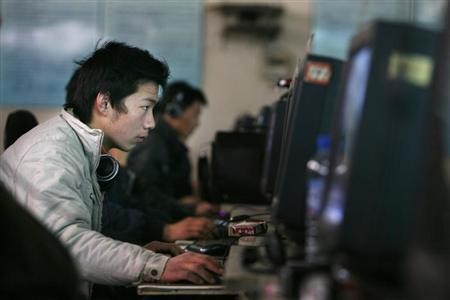On Monday, the Ministry of Culture released a blacklist of 120 "immoral" songs, and ordered website administrators to remove them from their sites, as part of China's monitoring of the country's Internet content and artistic expression.
The 120 songs were banned on the basis that they have "trumpeted obscenity, violence, crime or harmed social morality."
The ministry announced that if website administrators are caught not removing these songs, they will have to face "severe punishment." The statement read that "No unit or individual is allowed to provide these songs," noting that the songs had breached the 16th clause of the Internet Culture Management Regulation.
Among the blacklisted are five songs by Taiwanese singer Chang Csun Yuk, including the song "I Love Taiwanese Girls," which contains the line "I don't like Chinese women, I love Taiwanese girls," and the song "Fart," with the line "There are some people in the world who like farting while doing nothing."
Another song on the blacklist is "Shaking Your Head for Fun" by mainland singer Xu Song. The lyrics sound the same as "head shaking pill," which is a slang term for the illegal drug ecstasy.
Other artists found on the blacklist include pop singer Stanley Huang and rapper MC Hotdog. Also included are many popular songs, such as "Beijing Hooligans," "Don't Want to Go to School" and "Suicide Diary."
This is the first time in history that the Ministry of Culture has provided such a blacklist.
According to Liu Qiang, a ministry official in charge of the cultural market, the blacklist will serve as reference for online administrators to ensure that content is legal. She also said that the list will be updated in the future.
The blacklist is one of the recent examples of the Chinese government's efforts to control content on mainstream media and online. In June, 38 Japanese manga cartoons were blacklisted from appearing online.
In a speech delivered to artists in China last year, President Xi Jinping said that the works of artists should not carry the "stench of money" and must present socialist values. Many have compared this speech to the "Talks at the Yenan Forum on Literature and Art" by Mao Zedong.




























